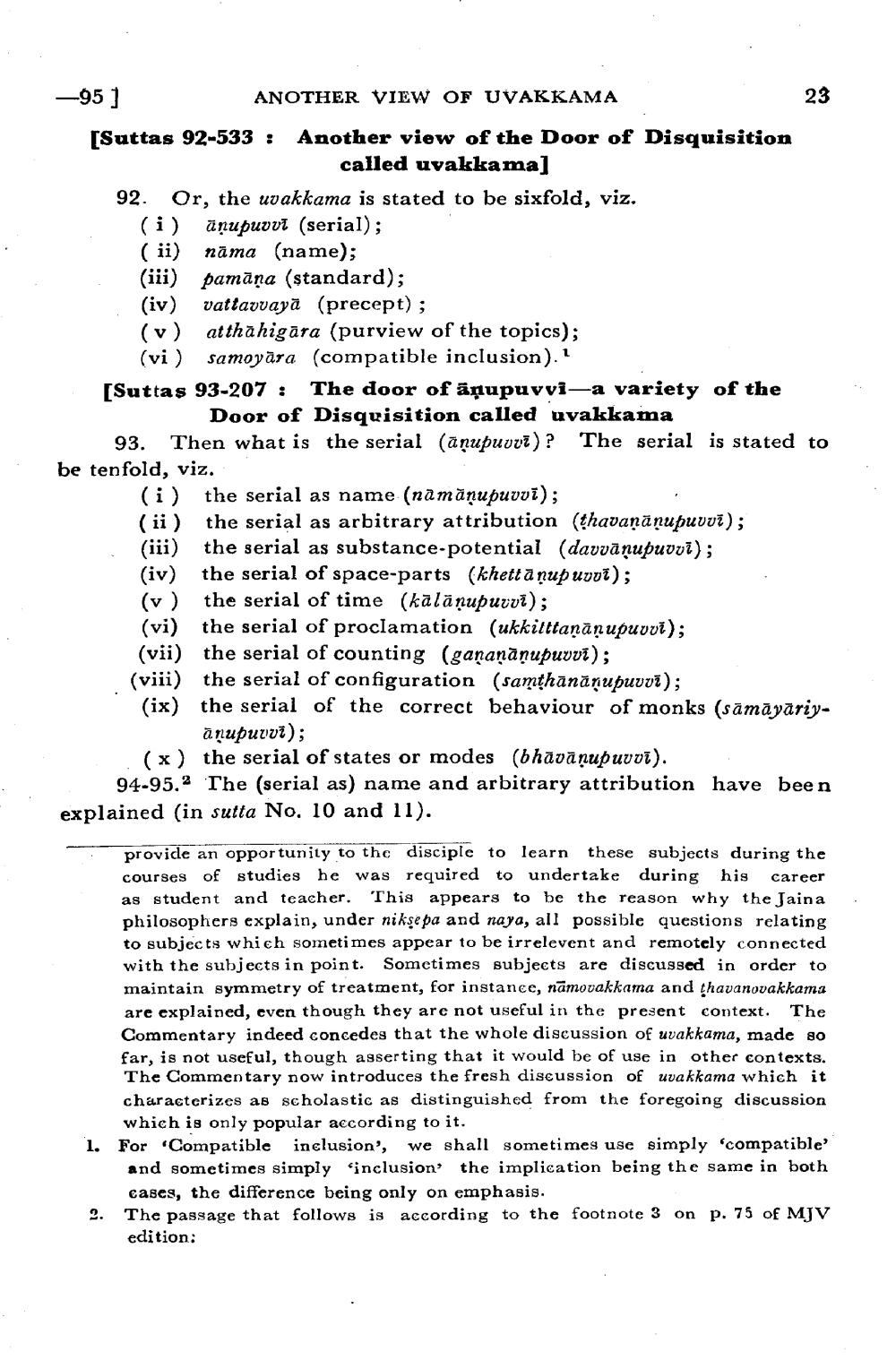________________
–95) ANOTHER VIEW OF UVAKKAMA
23 Suttas 92-533 : Another view of the Door of Disquisition
called uvakkama] 92. Or, the uvakkama is stated to be sixfold, viz.
(i) āņupuvut (serial); (ii) nāma (name); (iii) pamāna (standard); (iv) vattavvayā (precept); (v) atthāhigāra (purview of the topics);
(vi) samoyāra (compatible inclusion). 1 [Suttas 93-207 : The door of āņu puvvi-a variety of the
Door of Disquisition called uvakkama 93. Then what is the serial (anupuvvi)? The serial is stated to be tenfold, viz.
(i) the serial as name (namänupuvvi); (ii) the serial as arbitrary attribution (thavanānupuvui); (iii) the serial as substance-potential (davvānupuvvi); (iv) the serial of space-parts (khettä nupuvui); (v) the serial of time (kalā nupuvvi); (vi) the serial of proclamation (ukkilttaņānupuvvi); (vii) the serial of counting (gananāņupuvvi); (viii) the serial of configuration (samthānānupuvvi); (ix) the serial of the correct behaviour of monks (sāmāyāriy
ānupuvvi); (x) the serial of states or modes (bhāvāņupuuvi).
94-95.2 The (serial as) name and arbitrary attribution have been explained (in sutta No. 10 and 11).
provide an opportunity to the disciple to learn these subjects during the courses of studies he was required to undertake during his career as student and teacher. This appears to be the reason why the Jaina philosophers explain, under nikse pa and naya, all possible questions relating to subjects which sometimes appear to be irrelevent and remotely connected with the subjects in point. Sometimes subjects are discussed in order to maintain symmetry of treatment, for instance, nāmovakkama and thavanovakkama are explained, even though they are not useful in the present context. The Commentary indeed concedes that the whole discussion of uvakkama, made so far, is not useful, though asserting that it would be of use in other contexts. The Commentary now introduces the fresh discussion of uvakkama which it characterizes as scholastic as distinguished from the foregoing discussion which is only popular according to it. For Compatible inclusion', we shall sometimes use simply compatible' and sometimes simply 'inclusion' the implication being the same in both
cases, the difference being only on emphasis. 2. The passage that follows is according to the footnote 3 on p. 75 of MJV
edition:




